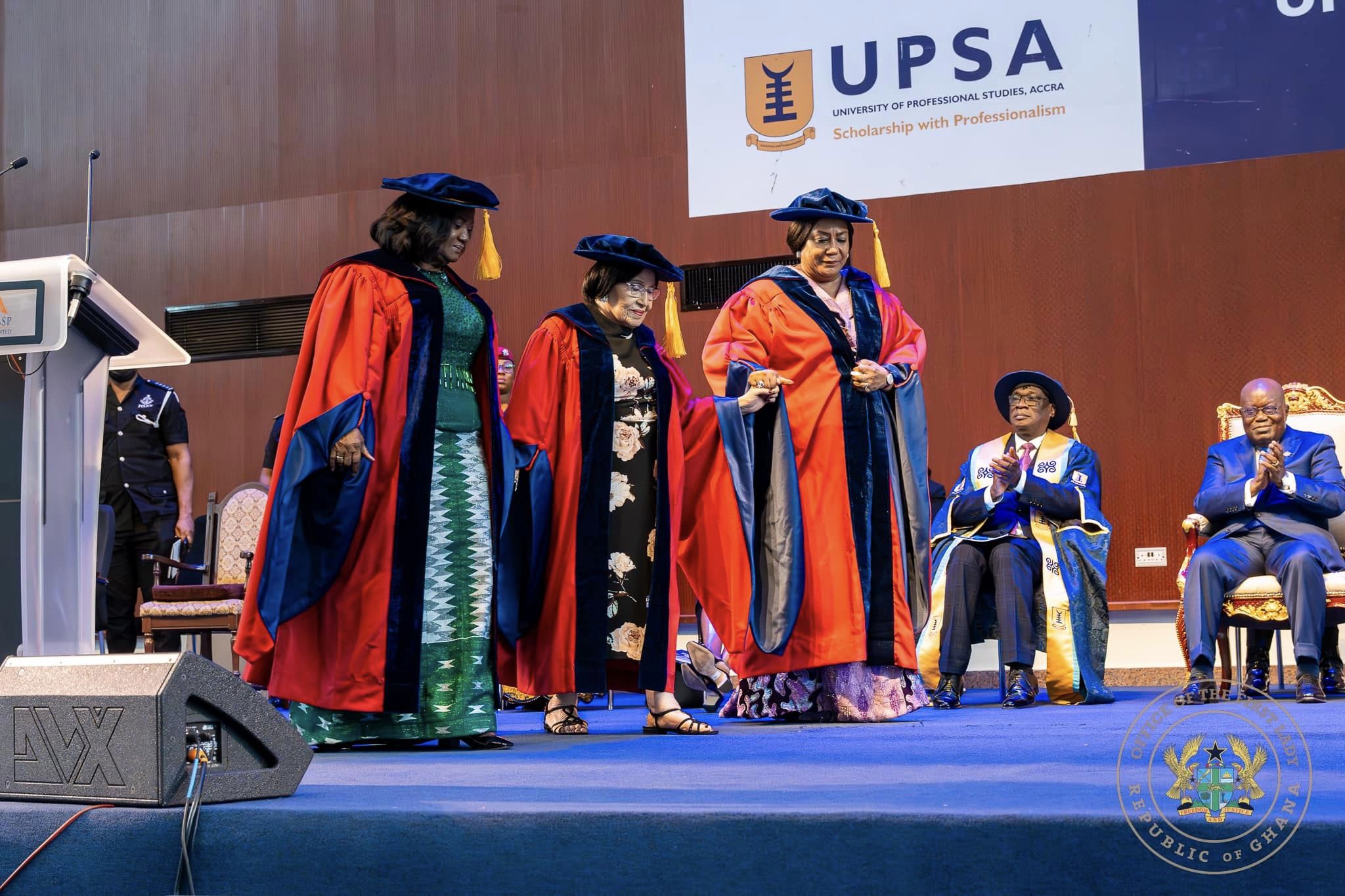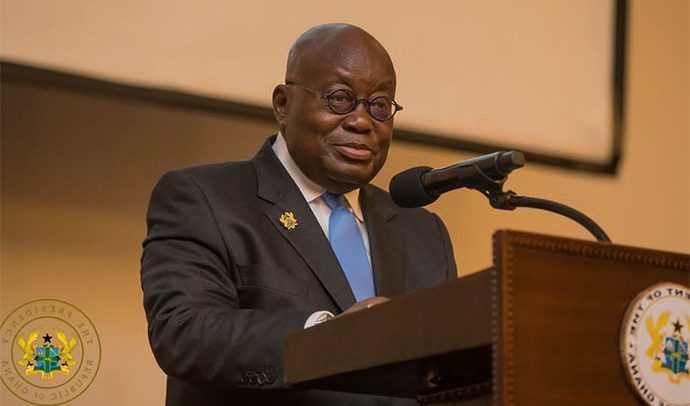
In January 2025, Ghana made history. Professor Jane Naana Opoku-Agyemang became the country’s first female Vice President, breaking a glass ceiling that had remained stubbornly intact since independence.
Now, with three years stretching ahead to 2028, one must ask the question that makes some uncomfortable and others exhilarated: could she go all the way to the top? Can a girl dream? Absolutely. And she should dream loudly.
Let’s examine what Ghana’s current Vice President brings to the table, shall we?
Professor Jane Naana Opoku-Agyemang, Vice President of Ghana looking elegant at an official function recently
A former Minister of Education who served from 2013 to 2017, literary scholar, university vice-chancellor and the first woman to lead a major political party’s ticket. Look at those credentials. Yet therein lies the problem: when a woman excels, she still risks being overlooked entirely.

Michelle Obama once reflected on her grandmother’s experience in the workplace, noting how qualified women hit glass ceilings while less qualified men advanced. Sounds familiar? In Ghana, women constitute 51.2 percent of the population but occupy merely 15.6 percent of parliamentary seats, falling dramatically short of the United Nations’ 30 percent benchmark. When half the population holds less than a sixth of the power, something has gone terribly wrong.
Critics will point to Tanzania. They always do. Samia Suluhu Hassan became Tanzania’s first female president in 2021, inheriting power after her predecessor’s death. Initially hailed as a breath of fresh air, Hassan later faced criticism for increasingly authoritarian governance, with her October 2025 re-election marred by allegations of repression and electoral irregularities.
But here’s the truth that needs saying; Hassan’s descent into authoritarianism isn’t about her gender. It’s about power, party structures and political systems that reward iron fists over open hands. Her party, Chama Cha Mapinduzi, has held power since 1961. That’s not a woman problem; that’s a democracy problem.
Yet when Hassan turned authoritarian, a famous cartoonist depicted her as a “Dictatoress”. Not a dictator. A dictatoress! Because apparently, even tyranny must be gendered. One wonders whether her male predecessors’ repressive tactics were similarly feminised in critique. The answer, of course, is no.
Women in leadership face an impossible tightrope. Too soft, and they’re ineffective. Too firm, and they’re authoritarian. Too emotional, and they’re unstable. Too composed, and they’re cold. As Michelle Obama astutely observed: “When you aren’t being listened to, why wouldn’t you get louder? If you’re written off as angry or emotional, doesn’t that just cause more of the same?”
The stereotype functions as an actual trap, one that ensnares women regardless of their actions. A man who stands firm is decisive; a woman who does the same is bossy. A man who builds consensus is diplomatic; a woman who does so is weak. The rules of engagement shift depending on who’s playing.
Ghana isn’t immune to these biases. Research shows that 95 percent of candidates in Ghana experienced degrading talk and false rumours, a form of political violence that affects women and men alike. But when that vitriol is directed at women, it carries extra weight, extra scrutiny, extra consequences. The burden of representation means that one woman’s perceived failure becomes ammunition against all women’s ambitions.
Let’s address the elephant in the room (pun intended); is Professor Opoku-Agyemang qualified to be president? The better question is, what more must she do to prove it?
She’s navigated Ghana’s education system as both scholar and minister. During her tenure, she oversaw the abolition of makeshift “schools under trees,” the construction of modern facilities and the provision of free textbooks and school uniforms. She’s led one of Africa’s biggest universities as chancellor. She’s campaigned twice on a national ticket, understanding intimately the pulse of Ghanaian voters. She herself acknowledged that “my job was to open the door, and it doesn’t end there. Actually, that is where the work begins.”
Compare this to the qualifications of men who’ve occupied or sought the presidency. Some had ministerial experience; others had business backgrounds; a few rode in on name recognition and party machinery alone. None had to justify their ambitions quite as exhaustively as women must.
Political pundits love asking whether countries are “ready” for female leaders, as if women’s leadership is an exotic dish that must be carefully introduced to an unaccustomed palate. The question itself is patronising. A 2022 survey found that 67 percent of Ghanaians support women’s political parity. The people are ready. The question is whether the structures will allow it.
Ghana passed the Affirmative Action (Gender Equality) Act in July 2024, mandating at least 30 percent female representation in public decision-making bodies by 2026, progressing to 50 percent by 2030. On paper, this is revolutionary. In practice, the Ministry of Gender and Social Protection remains one of the least funded ministries, and the act lacks clear enforcement mechanisms for parliamentary positions.
Laws without teeth are merely suggestions. And suggestions don’t dismantle centuries of patriarchal power structures.
Here’s what a Professor Opoku-Agyemang presidency could represent: not perfection, but possibility. Not the end of Ghana’s challenges, but proof that leadership doesn’t require a Y chromosome. Not a guarantee of progressive policies, but an expansion of who gets to shape them. Would she be a perfect president? No leader is. Would she face impossible scrutiny, have her every decision dissected through a gendered lens and carry the weight of representing all women on her shoulders? Undoubtedly. But that’s precisely why it matters.
Michelle Obama reminded us that “no country can ever truly flourish if it stifles the potential of its women and deprives itself of the contributions of half its citizens.” Ghana has flourished despite excluding women from its highest office. Imagine what it could achieve by including them.
2028 is three years away. That’s three years for Professor Jane Naana Opoku-Agyemang to demonstrate her vision for Ghana. Three years for political parties to decide whether they’re serious about the Affirmative Action Act or whether it’s merely decorative legislation. Three years for Ghanaians to examine their own biases about who “looks” presidential. Three years for a girl to dream of being president. And three years for that dream to become attainable reality.
The question isn’t whether Ghana needs a female president. The question is whether Ghana can afford to keep half its leadership potential locked away. The answer, for those paying attention, is glaringly obvious. So yes, a girl can dream. In 2028, perhaps Ghana will dream along with her.
>>>The writer is a PR, Marketing & Communications professional and General Secretary of the Network of Women in Broadcasting (NOWIB). A dedicated feminist and advocate for women in media, she champions workplace excellence while empowering voices and building bridges across the industry. Bridget is passionate about amplifying women’s stories and driving positive change in Ghana’s media. She can be reached via [email protected]
The post Her Space with Bridget Mensah: Can a girl dream of being president? Ghana better have an answer by 2028 appeared first on The Business & Financial Times.
Read Full Story

















Facebook
Twitter
Pinterest
Instagram
Google+
YouTube
LinkedIn
RSS